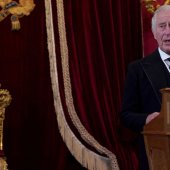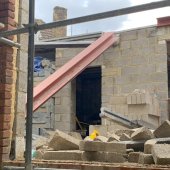The whole truth

US-based forensic engineer James P Waltz FCABE discusses what forensics mean in the built environment.
The concept of forensics, at least in the West, seems commonly to be associated exclusively with criminal matters. However, as defined by Merriam-Webster (our favorite definition source in the States) it means “belonging to, used in, or suitable to courts of judicature or to public discussion and debate”.
As it turns out, there are ample situations where construction defects and other building-related matters are best (or only) resolved through the use of forensic investigative and analytical skills in the practice of engineering, be it manufacturing, design, construction or even operations and maintenance of buildings and building infrastructure systems. However, how these skills are interpreted in court is another matter. One could easily write a book on the subject, but for the purpose of this article, we will limit it to two approaches.
The nature of the engineer
The engineers’ inherent nature is a significant factor in addressing legal matters and the deposition (particularly as practised in the US legal system). Engineers are problem solvers at heart, they also appear to have a predilection for loquaciousness.
The problem arises when a question is posed to the engineer as expert witness and is incomplete or illogical, or in some other way flawed. It is the nature of engineers to want to fix the question so that the truth of the matter in question can be properly explored and revealed.
While this might seem to be a laudable endeavour, it is quite problematic in legal proceedings. Solicitors and barristers are generally not knowledgeable of technical matters that are material to a case, and may not ask a question in a proper fashion, or intentionally slaughter a question so that the expert’s testimony in deposition may be used to later impeach the expert’s testimony at trial.
When the trial testimony appears to contradict that testimony given during deposition, the witness will be asked if they are lying. This is further problematic as the counsel who has engaged the expert may not realise that opposing counsel is employing such a tactic. As a matter of practicality, the forensic engineer providing expert testimony can (and should) really only answer questions asked, and eschew amplification, except where it may be particularly material. Curiously, this leads to the next point.
The unanswerable question
In the movie My Cousin Vinny (bear with me), Mona Lisa Vito is presented to the court by defence counsel as an expert on automobiles. The prosecution seeks to determine her qualifications by asking what the ignition timing would be on a 1955 Chevrolet with a 327 cubic inch (5.4 litre) engine. Miss Vito says she cannot answer the question, as it is a trick. Asked to explain why, she observes that the 327 V8 engine was not provided in Chevrolet saloons until 1964, and therefore there is no answer to the question as posed.
In this case the fact that the question was unanswerable was easy to explain. However, in more complicated or obscure matters, that a question assumes facts not in evidence may not be so easy to explain. For the court, what might sound like a perfectly reasonable technical question for the engineer would be like asking: “What is the colour of the number nine?”
The wise forensic engineer will make it a practice under oath to listen very carefully to questions posed by opposing counsel. The author’s practice is to ask the suspected unanswerable question to be repeated, then repeated once more, before adjudging the question to be unanswerable, and then to respond that: “The question makes no sense whatsoever, and that attempting to answer such a question would be based entirely on supposition, so no answer is, therefore, offered.”
The forensic engineer providing such a response should be prepared to be treated with anger and even accusation of violating their oath (or affirmation) – and they should refrain from attempting to answer the unanswerable question in the face of such behavior by counsel.
Anyone considering forensic engineering as a career path should be prepared not only to investigate and determine the causes of failure in a structure and provide expert testimony on how to fix an existing structural problem, but also how to best present their evidence in court to those who may not share their knowledge or expertise.
James Waltz features as the CABE member profile in this issue, here









